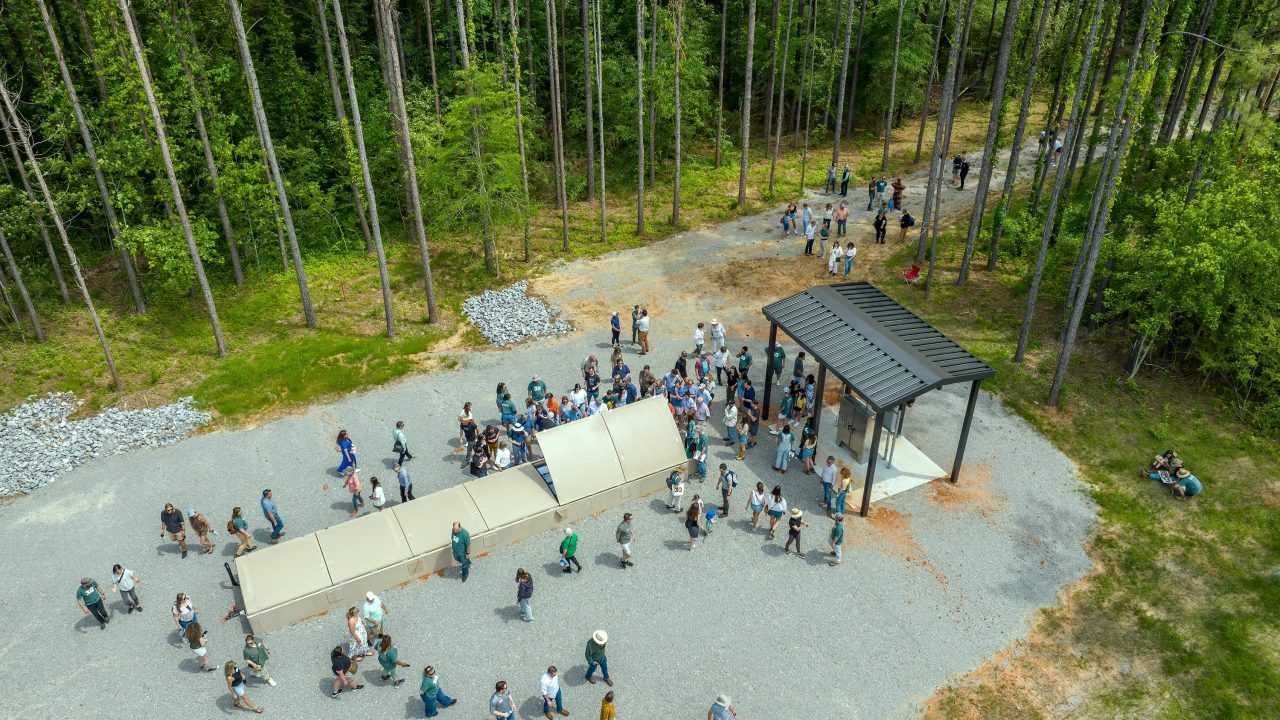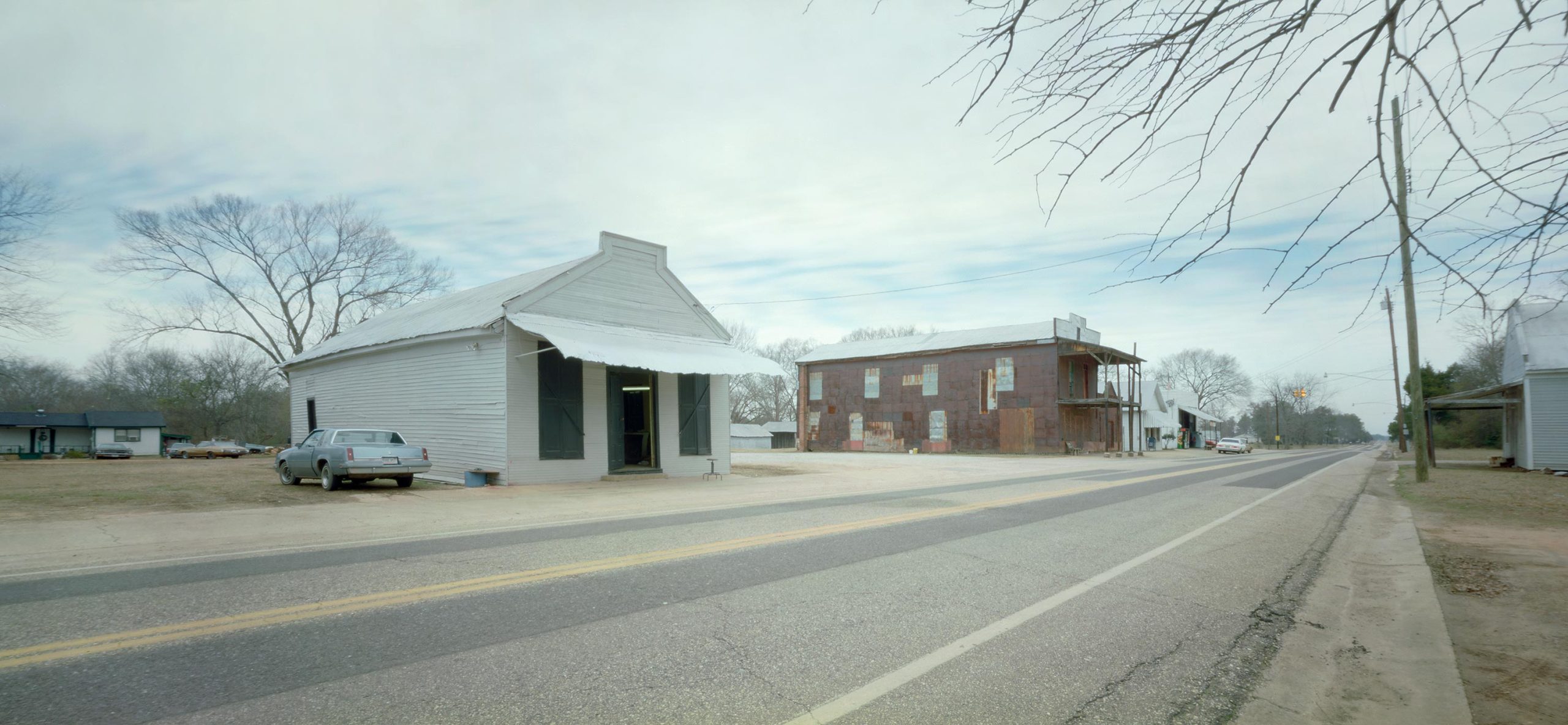Winning Research Proposal, Resulting Manual an Auburn Team Effort

Auburn University faculty members Aurélie Frolet, Emily McGlohn and Jillian Maxcy-Brown were recently awarded a 2024 Research Prize by the Skidmore, Owings and Merrill (SOM) Foundation.
Frolet is an Assistant Professor of Architecture and McGlohn is an Associate Professor of Architecture and Extension Specialist in the College of Architecture, Design and Construction (CADC). Maxcy-Brown is an Assistant Professor of Civil and Environmental Engineering in the Samuel Ginn College of Engineering.
Founded in 1979, the nonprofit SOM Foundation’s goal is to advance the design profession’s ability to address key topics of our time by bringing together and supporting groups and individuals, each with the highest possible design aspirations. The Foundation offers six annual awards across the United States, Europe and China.
The 2024 Research Award recognized the Auburn trio’s proposal entitled “Imaging Underground: Illustrating Wastewater Challenges and Opportunities to Inform and Empower Alabama’s Black Belt Communities.”
The project will produce—with the collaboration of Auburn Architecture students—a Wastewater Design Manual for stakeholders and municipalities in Alabama’s rural Black Belt region, an area with an urgent wastewater problem. Only 50 percent of Black Belt residents have access to municipal sewer systems.
In addition, due to the high costs of maintaining and replacing septic systems, many residents have resorted to “straight-piping” untreated sewage to ditches behind homes when systems fail, creating a major health and environmental crisis.
Funding from the Research Prize will allow us to better equip Black Belt residents with the knowledge and tools to identify and implement suitable wastewater solutions for their communities.
In 2018, The Consortium for Alabama Rural Water and Wastewater (CARWW) partnered with Auburn University and the CADC’s Rural Studio to pilot a new wastewater treatment idea: a low-maintenance decentralized cluster system that reduces operational and maintenance costs while mitigating health and environmental risks.
“Imaging Underground” will build on these efforts by providing a history of regional wastewater practices, an explanation of cluster system functions and suggested tools to give communities control over design decision-making during the economic development driven by new wastewater systems.
McGlohn has been overseeing the wastewater system work at Rural Studio while Maxcy-Brown has been leading the technical aspects of the system.
In addition, McGlohn is community engagement coordinator for the Rural Wastewater Demonstration Project—a joint effort among three state universities to bring a community-wide decentralized cluster wastewater system to Newbern, Alabama, home to the Rural Studio. She is also a community liaison, having established strong community ties in Hale County through Rural Studio’s community-enhancing building projects.

Frolet’s research focuses on the design and representation of water infrastructure at various scales, including questions of drinking water access, equity in wastewater systems and coastal resilience. She brought a new expertise to the team due to her particular interest in the role drawings and illustrations can play in informing broad audiences about technical issues.
Auburn Architecture students will also assist in the creation of the manual through a seminar course. The research and graphics will come from collaborators’ efforts as well as student work resulting from a semester long, three-credit architecture seminar course.
While the final manual will be prepared by the project team, there will be a round of knowledge exchange between students and community members during the seminar, as well as the finalization stage of the manual. Potential end users in Newbern will also evaluate the clarity and legibility of all the informational materials.
“We are thrilled with the opportunity the SOM Foundation has granted us to advance a sustainable, equitable and water-secure future in Alabama’s rural Black Belt,” said the trio of Auburn faculty members in response to receiving the award. “Funding from the Research Prize will allow us to better equip Black Belt residents with the knowledge and tools to identify and implement suitable wastewater solutions for their communities.”
See more in:
Faculty Collaboration, Faculty Recognition, Faculty Work, Research
Related people:
Aurélie Frolet, Emily McGlohn